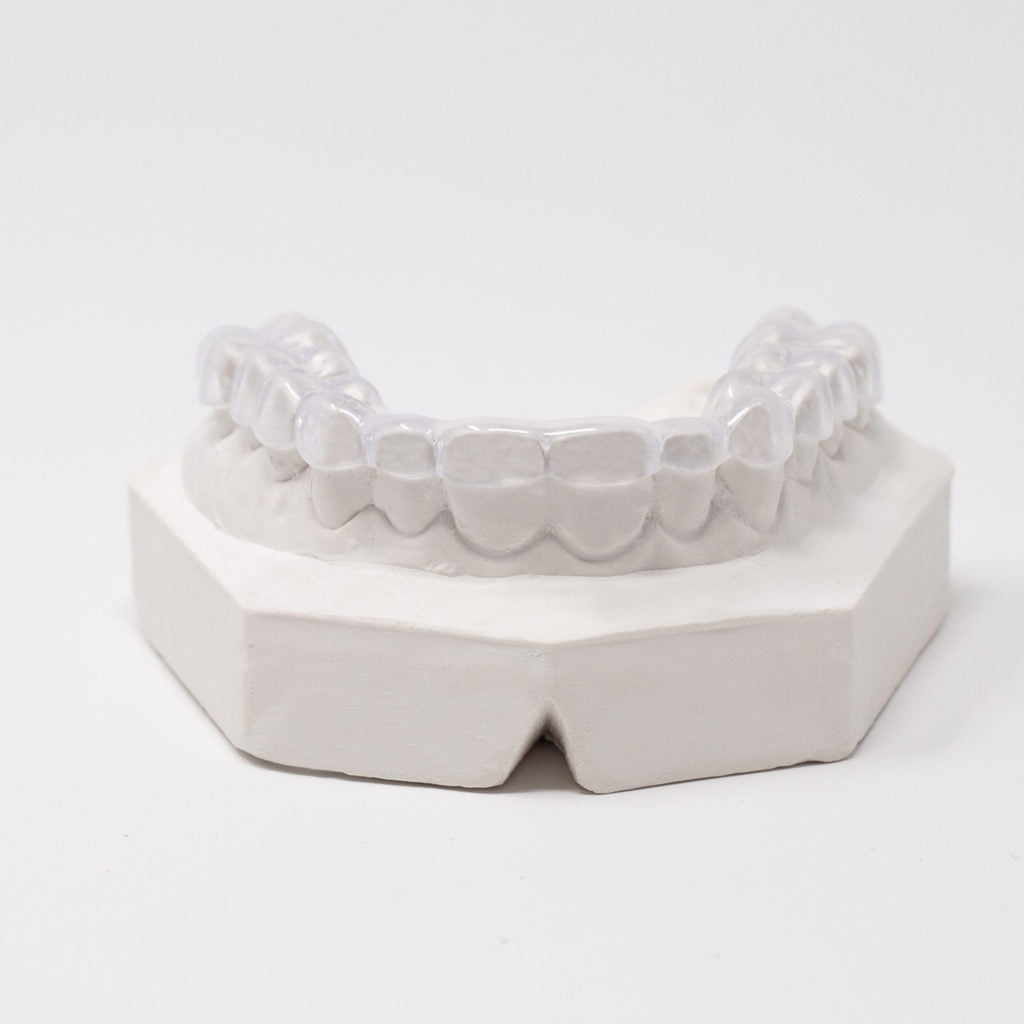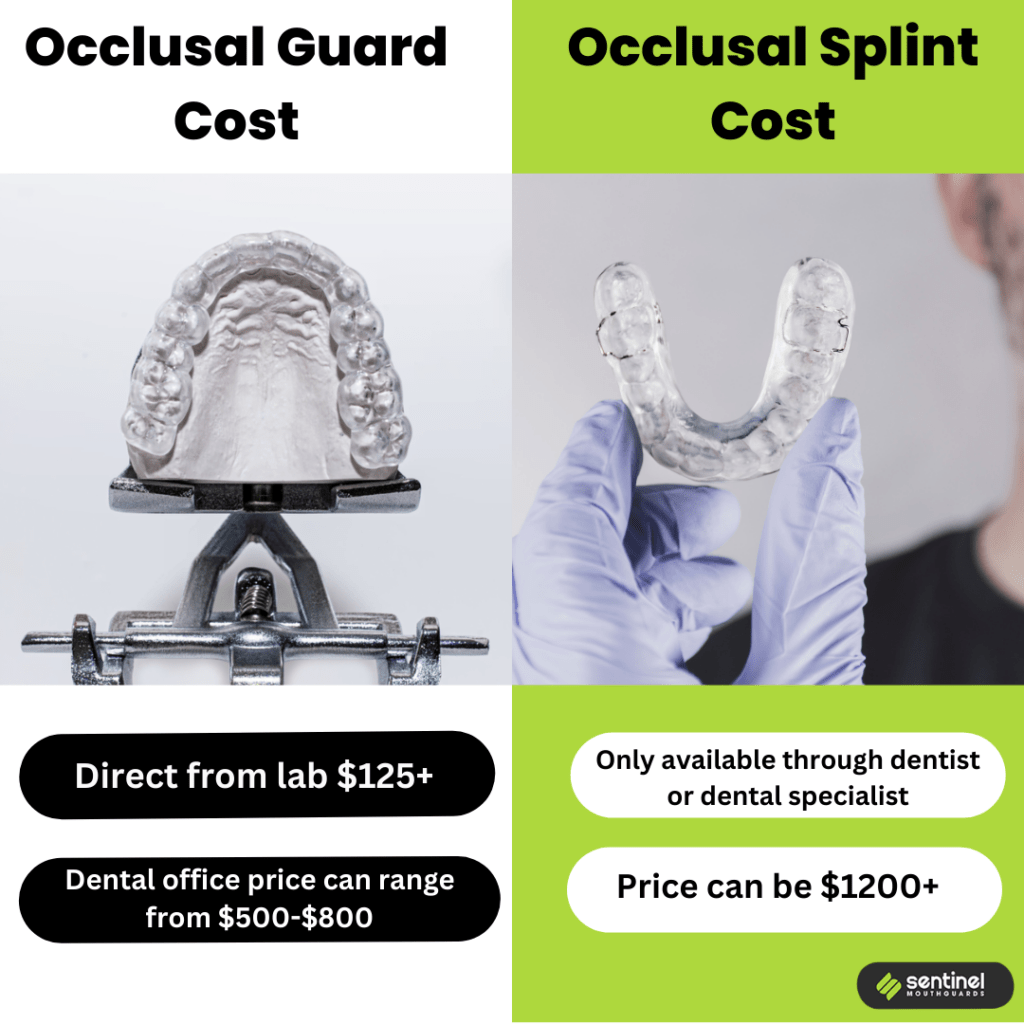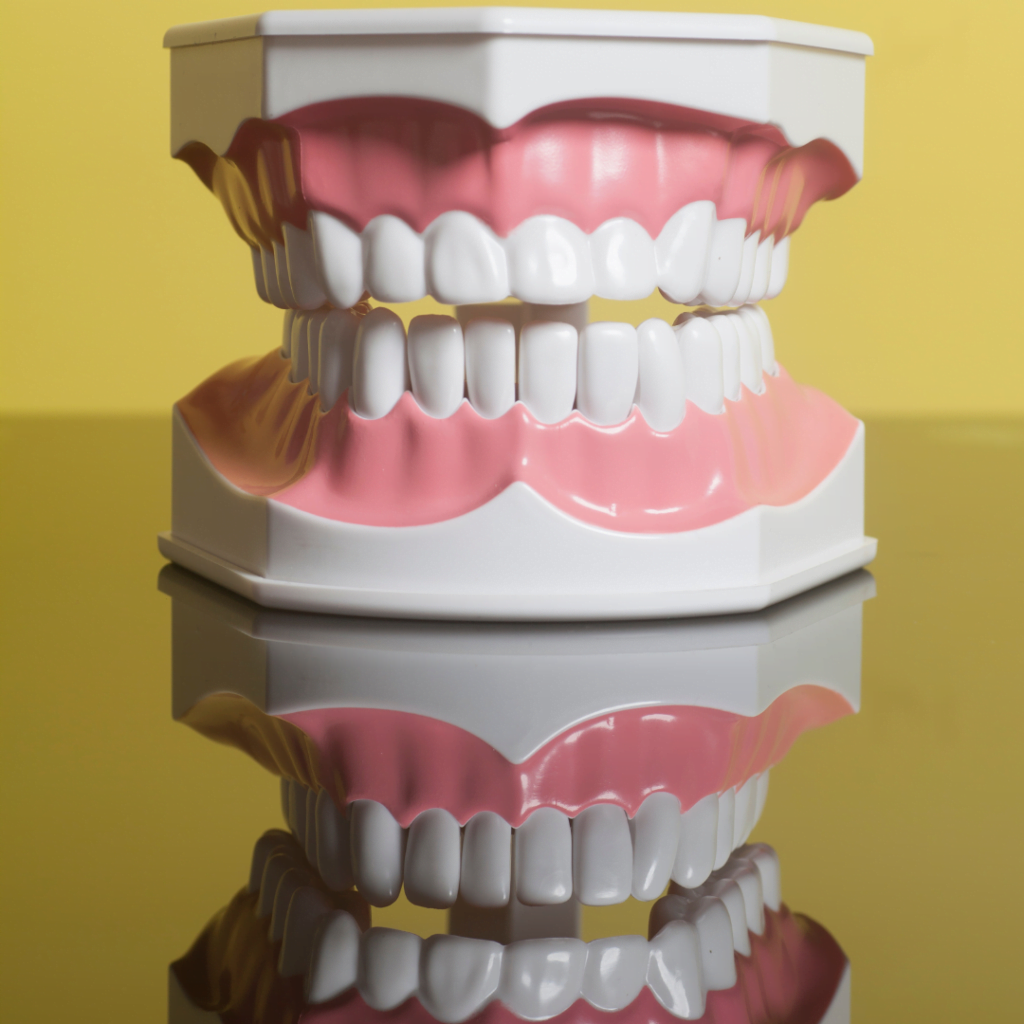This article has been checked and updated for accuracy on 03/28/2023
What is the difference between an occlusal guard and an occlusal splint?
An occlusal guard and an occlusal splint are both dental devices used to treat various dental conditions, but they do differ in terms of their design and purpose.
What is an Occlusal Guard?
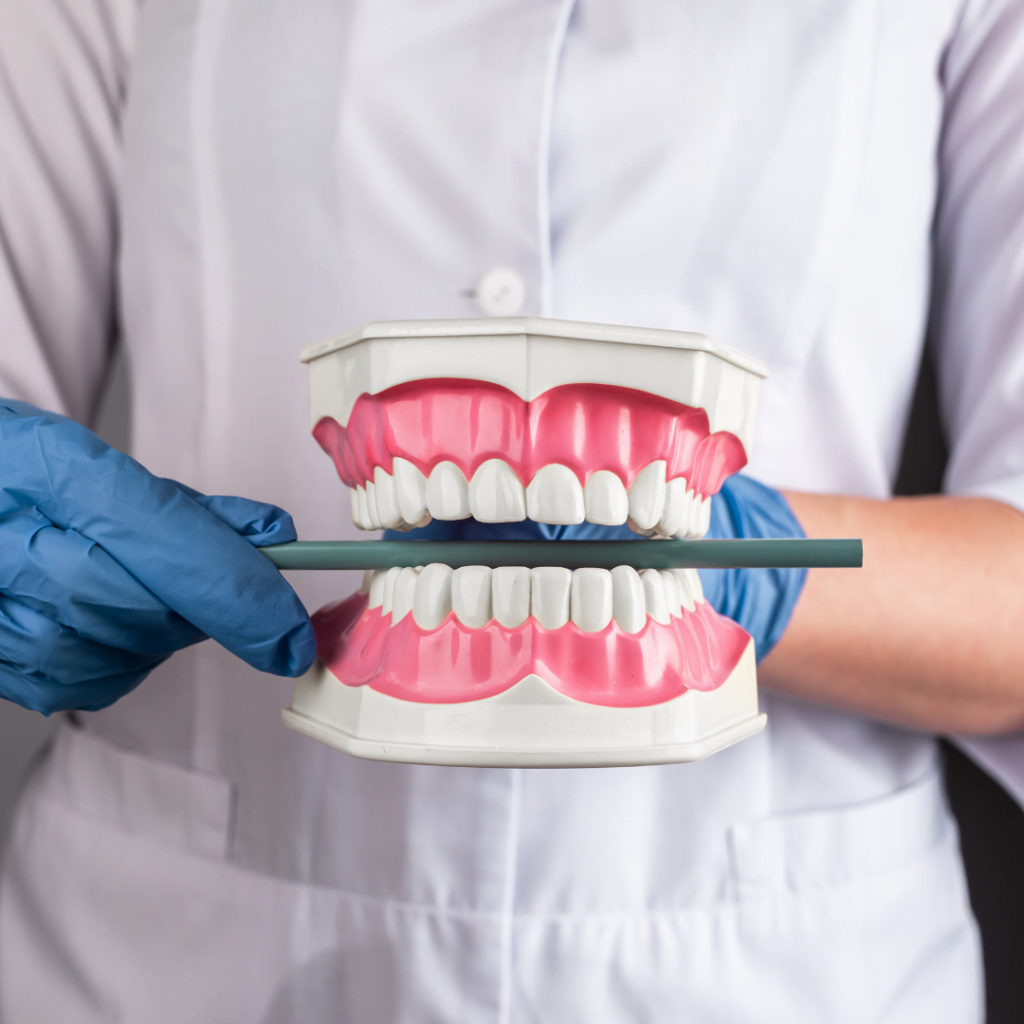
An occlusal guard is more commonly referred to as a night guard.
It is a clear, removable dental appliance that is worn over the teeth much like a glove to protect the teeth from damage resulting from bruxism. Bruxism is a term that refers to the habit of grinding and/or clenching the teeth at night or during the day.
“Occlusal” simply refers to the biting or grinding portion of the tooth surfaces. These “chewing” surfaces of the teeth need protection against the constant force of clenching and/or grinding.
A “guard” can be made from a variety of different materials including a hard, non-flexible material, a soft material or even a combination of both.
An occlusal guard is designed to be comfortable and to provide a cushioning effect that reduces the force of grinding or clenching, thereby protecting the teeth from wear and tear.
What is an Occlusal Splint?
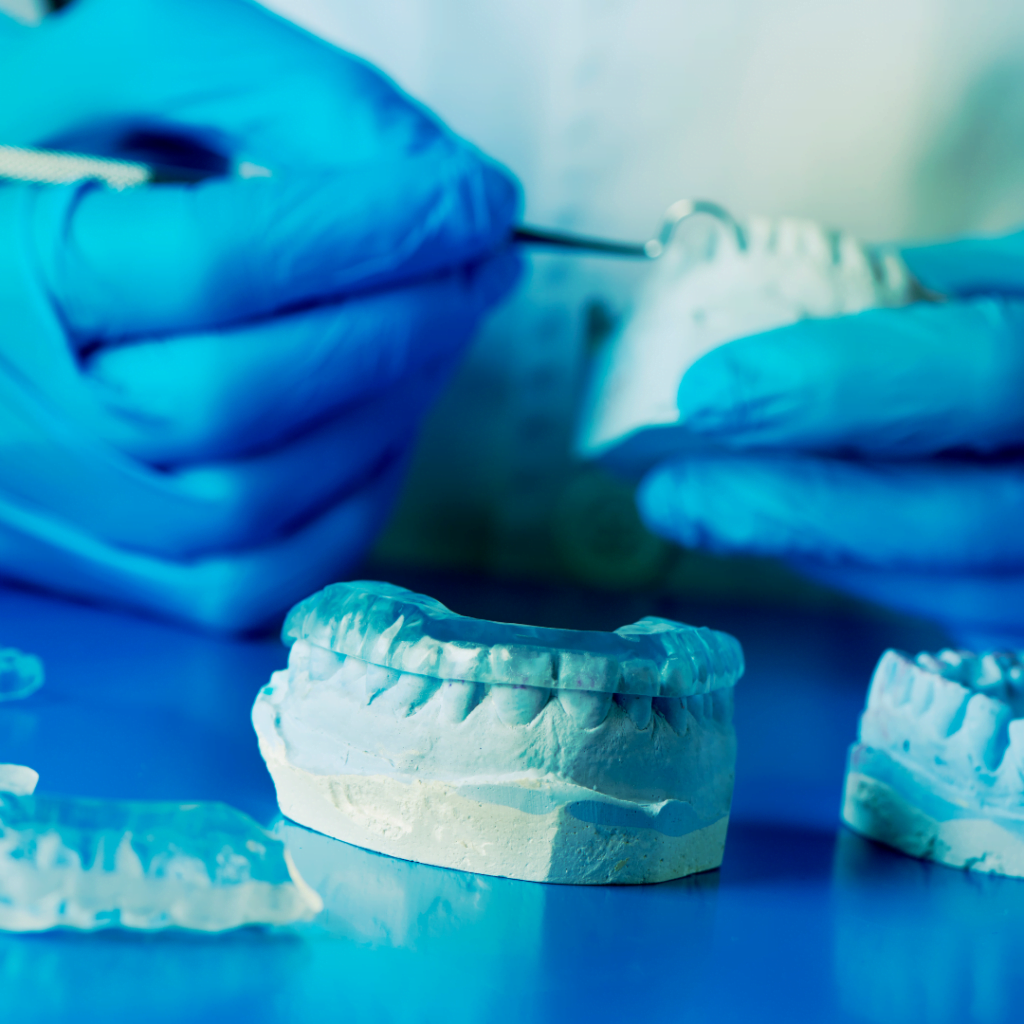
The occlusal splint, also known as a bite splint, is a removable dental appliance that is used to treat a variety of dental conditions, including TMJ disorder, bruxism and malocclusion. This type of guard is generally made of a hard, non-flexible material and is designed to fit over the top or bottom teeth. The function of an occlusal splint is to adjust the position of the teeth and/or jaw to improve the alignment of the bite and reduce symptoms associated with these conditions. This can greatly help with TMJ or jaw misalignment issues.
Occlusal splints are custom-made by a dentist or dental technician to fit the patient’s teeth and bite pattern.
Types of occlusal splints
- Anterior repositioning splints: Used to treat TMD, these splints help to reposition the jaw and relieve stress on the joint.
- Posterior bite plane splints: Designed to prevent the back teeth from touching, these splints are effective at reducing grinding and clenching.
- Neuromuscular orthotics: Used to treat complex bite problems, these splints are designed to align the teeth, muscles, and joints in the mouth.
The type of occlusal splint used will depend on the individual needs of the patient. A dentist can help determine the most appropriate type for a particular case.
Who needs an Occlusal Splint?
It’s important to note that not everyone who grinds or clenches their teeth needs an occlusal splint. Many individuals who suffer from nighttime teeth grinding and clenching wear a standard occlusal guard with much success. That being said, for individuals who suffer from severe bruxism or TMD, an occlusal splint may be the most effective solution. It’s important to work with a dentist or dental specialist to determine the best course of treatment.
Who needs an Occlusal Guard?
Persons that grind or clench their teeth in a habitual way (night after night) should wear an occlusal guard to protect their teeth and gums. This device is preventative and should be worn nightly or as prescribed by your doctor.
Teeth grinding (medically referred to as the bruxism) is a condition that mostly occurs involuntarily. The patient grinds, clenches or gnashes the teeth and it mostly occurs at night time while asleep. In some cases, it can happen during the day and involuntarily.
Teeth grinding wears your teeth down over time. Bruxism may cause teeth fractures thus leading to possible bacterial infections and/or expensive dental restoration work. The condition also causes week contact between the teeth and the jaws and this simply means that you might lose your teeth at a very early age.

-
Product on sale
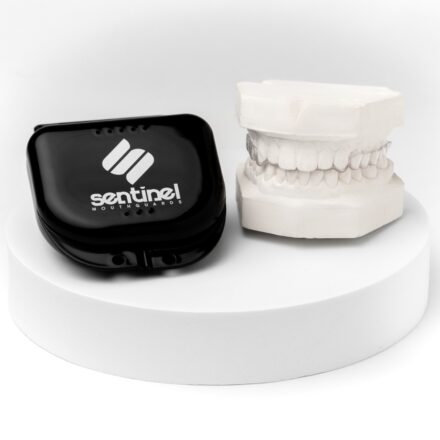 No-Show Day Mouth GuardOriginal price was: $149.00.$129.00Current price is: $129.00.
No-Show Day Mouth GuardOriginal price was: $149.00.$129.00Current price is: $129.00. -
Product on sale
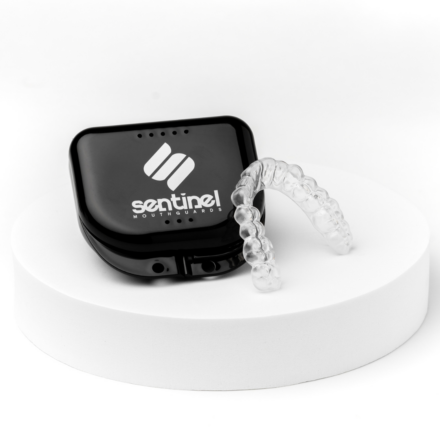 Durability Mouth Guard for Heavy Teeth GrindingOriginal price was: $215.00.$189.00Current price is: $189.00.
Durability Mouth Guard for Heavy Teeth GrindingOriginal price was: $215.00.$189.00Current price is: $189.00. -
Product on sale
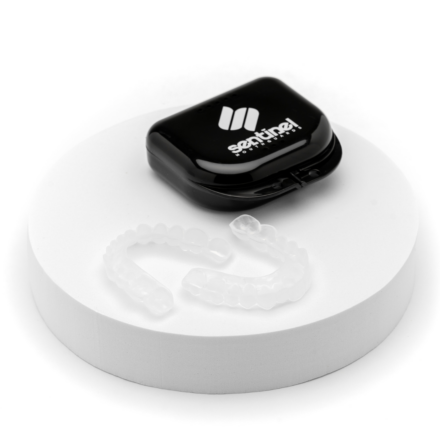 Tongue and Cheek Biting Relief Mouth GuardsOriginal price was: $189.00.$169.00Current price is: $169.00.
Tongue and Cheek Biting Relief Mouth GuardsOriginal price was: $189.00.$169.00Current price is: $169.00. -
Product on sale
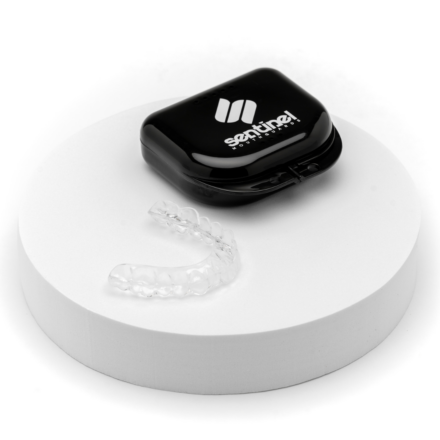 Custom Hard Night GuardOriginal price was: $169.00.$149.00Current price is: $149.00.
Custom Hard Night GuardOriginal price was: $169.00.$149.00Current price is: $149.00. -
Product on sale
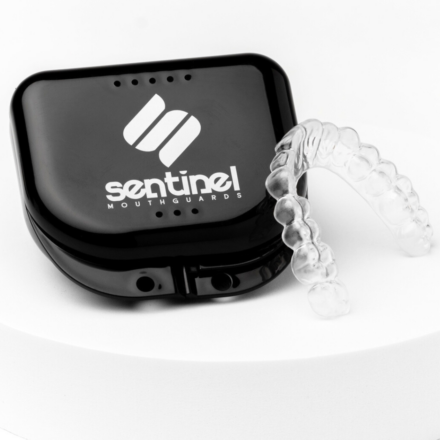 Custom Soft Night GuardOriginal price was: $149.00.$129.00Current price is: $129.00.
Custom Soft Night GuardOriginal price was: $149.00.$129.00Current price is: $129.00. -
Product on sale
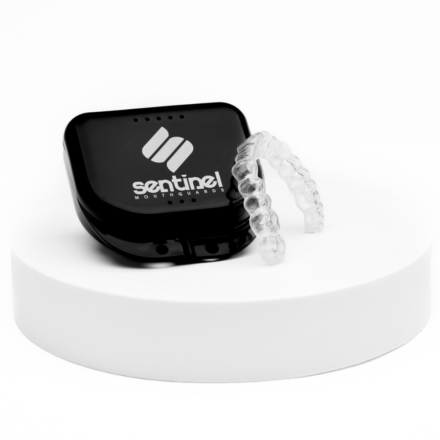 Custom Dual Laminated Night GuardOriginal price was: $169.00.$149.00Current price is: $149.00.
Custom Dual Laminated Night GuardOriginal price was: $169.00.$149.00Current price is: $149.00.
Why should I wear an occlusal guard?
You may need to wear an occlusal guard, also known as a night guard, if you have a habit of grinding or clenching your teeth. Teeth grinding is most often caused by sleeping habits and stress. These two conditions must be treated to stop this condition. Bruxism can cause a range of dental problems, including:
- Tooth damage: Constant grinding can wear down the enamel on your teeth, causing them to become chipped, fractured and/or flattened.
- Jaw pain: Bruxism can cause pain in your jaw, ears, or face due to constant clenching and grinding of the teeth.
- Headaches: Bruxism can lead to frequent headaches, especially in the morning.
- Sleep disturbances: Grinding or clenching of the teeth during the night can disturb sleep, leading to fatigue and exhaustion during the day.
- TMJ disorder: Bruxism can lead to a disorder of the temporomandibular joint, which connects the jawbone to the skull. This can result in pain in the jaw, difficulty opening and closing the mouth, and a clicking or popping sound when chewing.
Occlusal Guard Price
In the dental office, occlusal guard price ranges from $300-$800 depending on where you are located in the world. Dental offices in Alabama may charge hundreds less than let’s say downtown San Francisco.
Online, custom night guard prices range from $125-$200+.
How do occlusal guards work?
Occlusal guards do not cure teeth grinding. To date, there is still no known cure for teeth grinding. Effectively, these custom night guards provide a barrier between the chewing surfaces of the teeth so that the destructive forces take a break from meeting each other night after night. This gives your jaw a break and allows your teeth to avoid the damage(s) from constant grinding and teeth grinding. You can also wear a day guard if you’re grinding or clenching during daytime hours.
Wearing a night guard is the best way to prevent further damage and relieve the associated symptoms of teeth grinding such as headaches, jaw pain, teeth pain, facial soreness, teeth flattening/cracking/breakage.
What are occlusal guards made of?
Occlusal guards can be made from a variety of plastic materials including silicon, ethylene vinyl acetate, copolysters and more. Your dentist or provider should be able to provide a list of the materials used in their products. Be sure to check if your dental night guard is BPA free. If you have allergies to plastics or chemicals do your research. A reputable provider should be able to answer your questions and guide you to the right night guard type for you.
Things to avoid to protect your teeth from further damage
Using teeth as tools
The primary purpose of teeth is to grind food to ease digestion. They are not meant for cracking hard materials and other odd jobs people expose them to. Some of the odd jobs where many use their teeth on include tearing open plastic bags, straightening a bent folk and uncapping soda bottles among others. Most people have at one time or another for using their teeth to uncap their drinks. These activities can cause the teeth edge to weaken or even fracture. Keeping necessary tools such as bottle openers and scissors on hand is the safest way of avoiding such cases.
High intake of caffeine, alcohol or drug stimulants
Cigarettes and other tobacco products are mostly associated with health problems such as lung cancer but little is said about teeth damage.
Several studies have shown that cigar smokers are at high risk of bone and tooth loss. Tobacco is a stimulant that contains a substance called nicotine that not only destroys the lungs but teeth too. Nicotine settles on the teeth enamel gradually turning them yellow. With time the teeth will decay. The substance is also known for inhibiting saliva making in the mouth and this promotes bacteria build up.
Caffeine and alcohol have similar effects as tobacco. High intake of both significantly promotes tooth decay over time. Research has also suggested that people who ingest stimulants daily are more susceptible to bruxism disorders. This leads to the need of an occlusal guard or splint.
It is therefore important to reduce the intake of concentrated coffee and also the frequency of taking alcohol.
Crunching on ice and sugary drinks
Many of us love cold drinks, particularly during summers. Ice-cold soda or iced tea is a favorite to many while crunching the left over ice is such an amazing feeling. But these enjoyments can be harmful to your dental health.
The material forming the outer tooth structure (enamel) is very sensitive to temperature fluctuations. The cold temperature of the ice can cause your teeth to have microscopic cracks or fracture. These cracks will expose the teeth to bacterial infections and does not end well. You also should stop the habit of crunching popcorn since it puts undue stress on the teeth and can also cause tiny fractures.
Avoid sipping sugary and acid beverages especially sodas throughout the day. It is important to note that you may be feeding bacteria with some of these sugary drinks.
Acidic beverages are also known for fostering tooth decay. If you have to sip your favorite drink, try to use a straw to minimize teeth exposure. Additionally, hard breath mints are not good for your teeth and you should avoid them. The bottom line is, be mindful of what you put in your mouth since it will have an impact on your dental health in future.
Remember, you need your teeth for a lot more than smiling. If you realize that some dental problems are cropping up, it is important to have it checked immediately by your dentist. Dental health should be emphasized from an early age to avoid complicated cases in future. A mouthguard for sleeping is a great investment in yourself and your health.
It is also advisable to have your teeth checked at least twice in a year. Wearing an occlusal guard or sometimes called a bite splint is a responsible, preventative measure and will save you hundreds of dollars in expensive dental repairs down the road.
How do I clean my occlusal guard?
There are many effective ways to clean your occlusal guard. Many of our customers have found that the best time to clean their night guard is in the morning at the same time you brush your teeth.
Buy a cheap toothbrush to use only for cleaning your night guard. The best way to clean your night guard is to fill a pump dispenser with a mild organic soap. We love Dr. Bronner’s Peppermint Soap. You can dilute it with water and it lasts for a very long time. Squirt a few pumps of soap onto the toothbrush and scrub each tooth compartment. Remember to rinse the guard thoroughly after scrubbing. Pat dry with a towel or napkin. Store your cleaned night guard in its original retainer case. Don’t forget to clean the retainer case too!
If properly cared for, human teeth can last their entire lifetime.
The Academy of General Dentistry reports that there is no reason senior citizens can’t keep their natural teeth for a lifetime since tooth loss is the result of oral issues not due to aging. This is where the occlusal guard comes in.
Healthy teeth may be important aesthetically but they’re also GREATLY linked to overall health within the body.
A majority of the people believe that just brushing your teeth daily is a guarantee for a goo
Have questions? We would love to chat with you. Our team is available Mon-Fri 9am-5pm Eastern
info@sentinelmouthguards.com or 1.888.317.0724
References:
Crout, Danny K. DMD, MS (2016) Anatomy of an Occlusal Splint. ADA GENERAL DENTISTRY March/April 2017, 52-59
Carlier, Jean-Francois (2011), Usefulness of Occlusal Splints. J Dentofacial Anom Orthod 2012;15:20. Ó RODF/ EDP Sciences, 1-11
Goncalves DA, Bigal ME, Jales LC, Camparis CM, Speciali JG. Headache and symptoms of temporomandibular disorder: an epidemiological study. Headache 2010;50:231–41.

